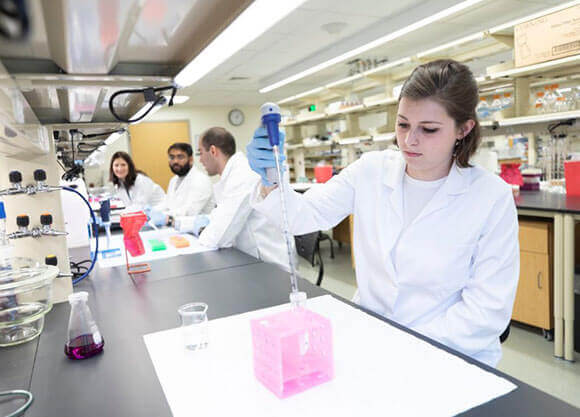
Considerations before completing your at-home genetic test
December 23, 2018

December 23, 2018

Don’t take the DNA tests necessarily at face value.
Direct-to-consumer DNA kits offered by companies like 23andME and AncestryDNA can open a treasure chest of family history or a Pandora’s box of questions.
Many times, lab results will yield both, according to genetics expert Miriam Dimaio.
Dimaio, an assistant professor of medical sciences at the Frank H. Netter MD School of Medicine and a board-certified genetic counselor, said there are important issues to consider before giving a DNA kit as a gift or swabbing your own cheek for the lab.
“In general, the ancestry testing is quite accurate,” Dimaio said. “It won’t pinpoint exactly where in the world your ancestors are from, but you can get the general region.”
Dimaio cautioned, however, that ancestry tests also can reveal unsettling information. Siblings could learn that they are, in fact, half-siblings. Or a child may discover his or her mother used a donor egg to conceive and kept this information a secret.
These revelations also can be accompanied by potential health risks.
“These tests indicate only if someone has a decreased or increased risk compared to other people,” Dimaio explained. “They don’t take into account health and family history, either – which are absolutely crucial.”
Without proper oversight, DNA test results can be inaccurate, incomplete or misunderstood, Dimaio said. She recommends that people bring their results to a board-certified genetic counselor for a comprehensive review.
Dimaio advises consumers interested in learning more about their risk level for medical conditions to not rely exclusively on the results of home genetic tests.
“People concerned about family histories of cancer, diabetes and other serious diseases should consult a specialist who can administer the right tests, interpret them properly, and lay out management options congruent with their personal beliefs and goals,” she said.
Genetics expert Miriam Dimaio says individuals interested in using home DNA testing kits should ask themselves why they are taking the test before completing it.
Dimaio has focused primarily on reproductive genetics for 34 years, all but one at Yale. She has witnessed incredible advances in the field, especially since the mapping of the human genome.
“Over the past three decades, a transformation has taken place,” she said. “We now recognize that our genetic makeup contributes to all aspects of our health and our vulnerability to disease.”
Dimaio pointed out that direct-to-consumer genetic testing is still in its infancy. Whether it will have a positive impact in the long term remains to be seen. Ultimately, she said, the choice to explore this new technology should hinge on people’s motivation.
“If they want ancestry testing, I’d say go for it,” Dimaio said. “I’m more concerned about people having their fears preyed on, or becoming falsely reassured that they are at low risk for disease.”
Quinnipiac Today is your source for what's happening throughout #BobcatNation. Sign up for our weekly email newsletter to be among the first to know about news, events and members of our Bobcat family who are making a positive difference in our world.
Sign Up Now